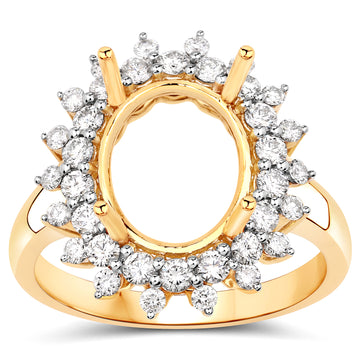When it comes to purchasing a diamond ring, it can often feel overwhelming with the plethora of options available on the market. Whether you are looking for an engagement ring, a special gift, or a self-indulgent treat, buying a diamond ring should be an enjoyable and memorable experience. To help you make a dazzling purchase with confidence, we have compiled essential tips to guide you through the process.
Understanding the 4 Cs of Diamonds
Before diving into the world of diamond shopping, it is crucial to have a good grasp of the 4 Cs – cut, color, clarity, and carat weight. These factors determine the quality and value of a diamond, and understanding them will help you make an informed decision when selecting a diamond ring.
Cut
- The cut of a diamond refers to the symmetry, proportions, and polish of the stone, which directly impacts its brilliance and sparkle.
- A well-cut diamond will reflect light beautifully and appear more radiant.
Color
- Diamond color is graded on a scale from D (colorless) to Z (light yellow or brown).
- For a sparkling diamond, it is recommended to choose a stone with a color grade between D and J.
Clarity
- Clarity measures the presence of inclusions or blemishes within the diamond.
- Opt for a diamond with a clarity grade of VS2 or higher for a stone that appears flawless to the naked eye.
Carat Weight
- Carat weight refers to the size of the diamond, with one carat equaling 200 milligrams.
- Balance between carat weight and other factors like cut, color, and clarity to find the ideal diamond that fits your preferences and budget.
Setting a Budget
Establishing a budget is a crucial step in the diamond ring buying process. By determining how much you are willing to spend, you can narrow down your options and focus on rings that fall within your price range.
Key Considerations for Setting a Budget
- Research average prices for diamond rings to get an idea of what to expect.
- Factor in additional costs like ring setting, metal type, and any customization or engraving.
- Be flexible with your budget to accommodate unexpected expenses or to seize a great deal on a high-quality diamond ring.
Choosing a Reputable Jeweler
When buying a diamond ring, it is essential to choose a reputable jeweler who offers high-quality diamonds, excellent customer service, and a range of options to suit your preferences. Researching and selecting the right jeweler will ensure a smooth and satisfying buying experience.
Factors to Consider When Selecting a Jeweler
- Look for jewelers with a long-standing reputation for quality and integrity.
- Read reviews and testimonials from previous customers to gauge the jeweler's credibility and reliability.
- Visit the jeweler in person to examine their selection of diamond rings and assess their knowledge and expertise.
Requesting Certification
Before making a purchase, always ask for a diamond certification from a reputable gemological laboratory. A certification provides detailed information about the diamond's 4 Cs and serves as a guarantee of its quality and authenticity.
Popular Gemological Laboratories for Diamond Certification
- GIA (Gemological Institute of America): Known for their strict grading standards and consistency in diamond certifications.
- AGS (American Gem Society): Focuses on cut quality and offers detailed diamond reports.
- IGI (International Gemological Institute): Provides comprehensive diamond grading reports that include laser inscriptions for identification.
Considering Ring Maintenance and Insurance
After purchasing a diamond ring, it is important to think about its maintenance and protection. Regular cleaning and inspection will keep your ring looking its best, while insurance coverage can provide peace of mind against loss, damage, or theft.
Tips for Ring Maintenance and Insurance
- Follow care instructions provided by the jeweler to clean and maintain your diamond ring.
- Consider adding the ring to your homeowner's or renter's insurance policy or purchasing separate jewelry insurance for comprehensive coverage.
- Regularly have your ring inspected by a jeweler to check for loose stones, damaged prongs, or other issues that may require repair.
